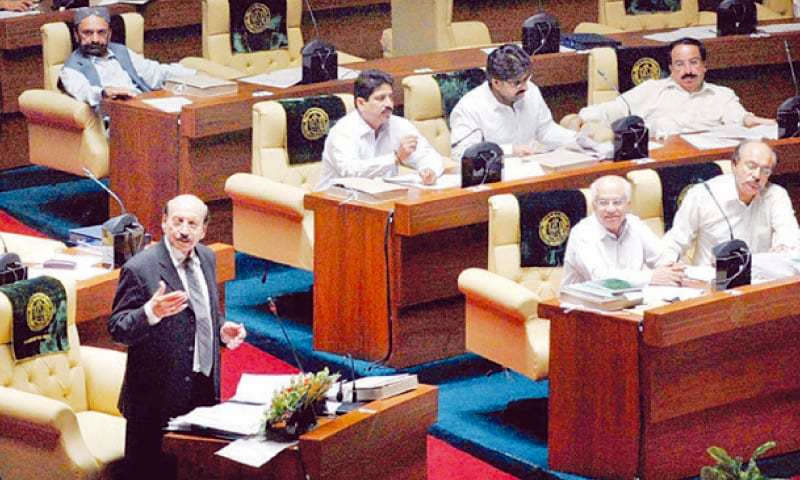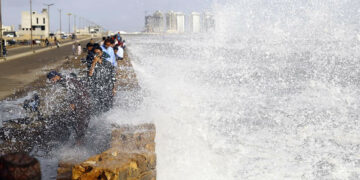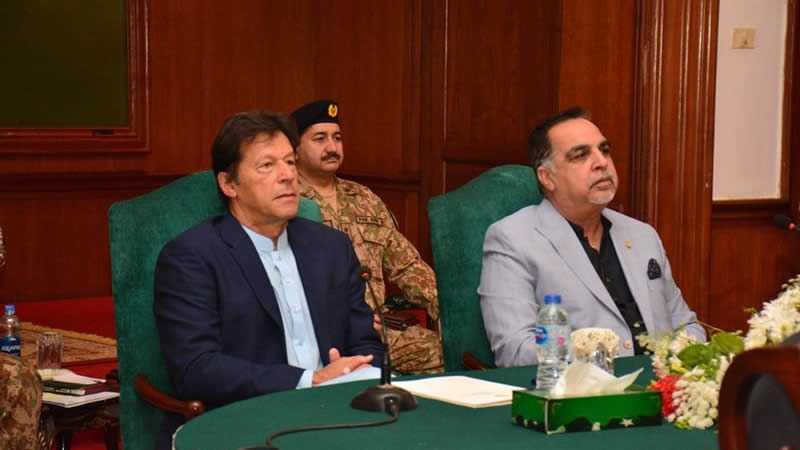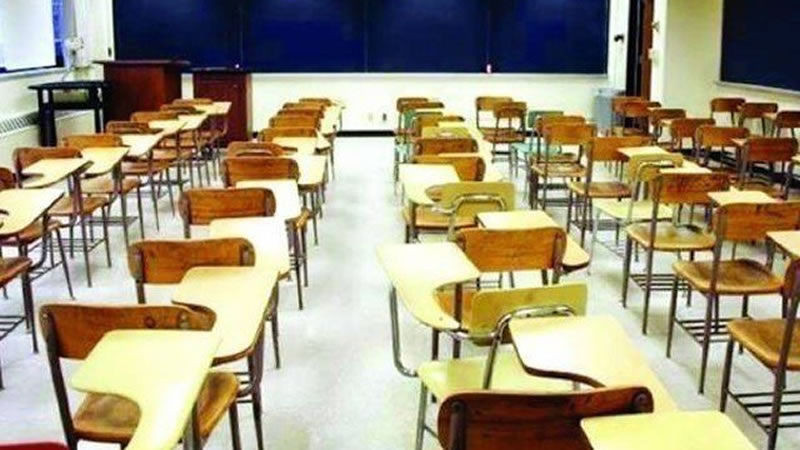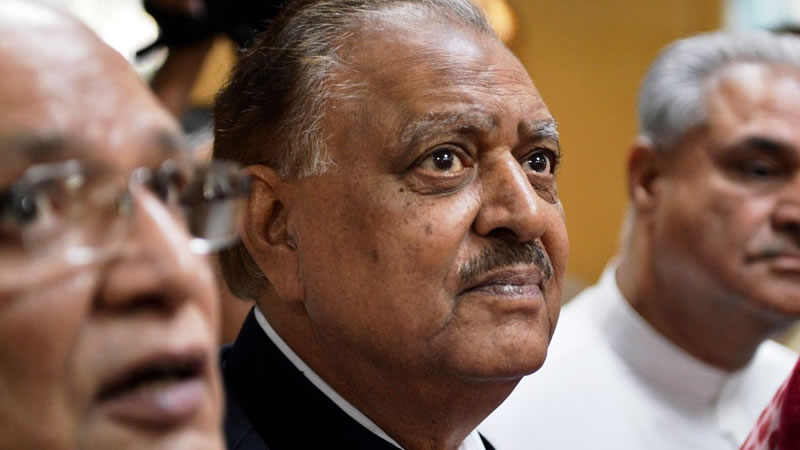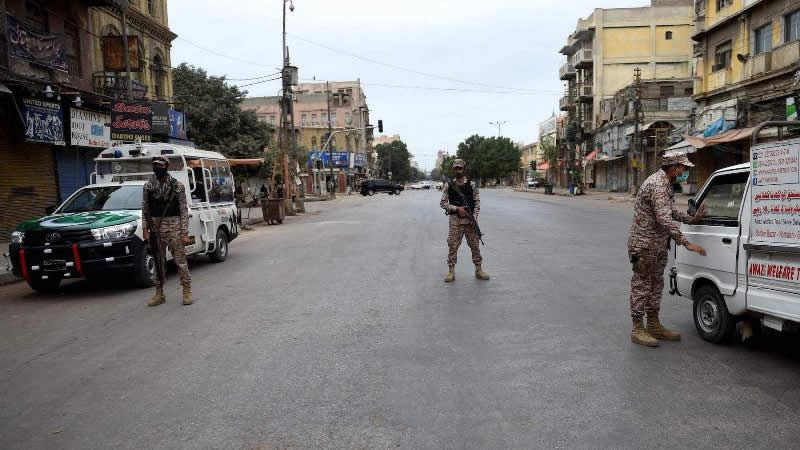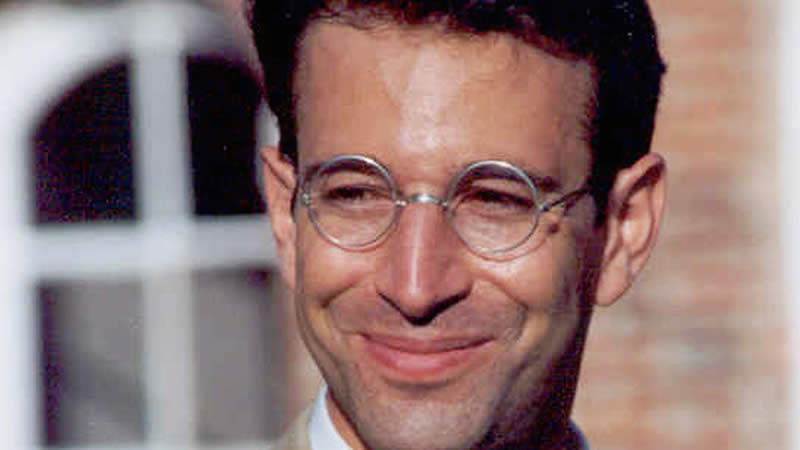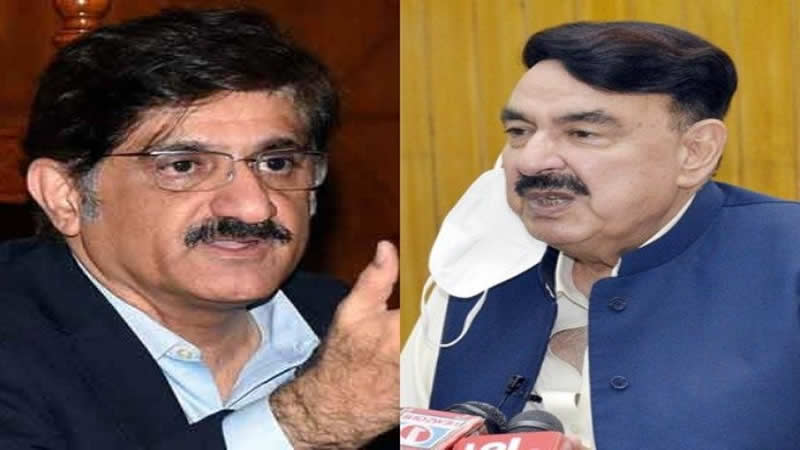The focus of the Sindh budget is not expected to change much, except for probably providing greater allocations for visible development projects in three major cities: Karachi, Hyderabad and Sukkur.
[contentblock id=1 img=adsense.png]
On the revenue side, the collection system may be strengthened, but there are no indications that the provincial PPP government would revise the agricultural income tax rates or start reassessing the value of farm produce for tax purposes.
It seems to be in no mood to tinker with the tax structure in the province. The government also does not appear to be worried about the flight of capital from Sindh, which is projected to be higher than the national average. Last week, the Sindh Assembly discussed the upcoming budget and reviewed the government’s performance over the ongoing fiscal. The noisy sessions were high on verbosity and low on content. The issues of sliding social service standards, corruption and the ongoing water crisis in Karachi were debated. PML-F MPA Nusrat Sehar Abbasi quoted the Sindh Auditor General, who has reportedly projected that corruption costs the province Rs22bn, without specifying the year. Earlier, the provincial finance department had released its quarterly report for January-March, which showed that the province received 20pc less (Rs71.9bn) than its stipulated share from the federal fund transfers over the first nine months of this fiscal. Meanwhile, the province’s own receipts (tax and non-tax levies) rose 22.8pc. And Sindh’s economic managers claimed to have taken a policy decision to empower autonomous bodies with better human resource and more aggressively pursue public-private partnership in social and physical infrastructure projects.
[contentblock id=2 img=gcb.png]
They also boasted about performing better than the other federating units in mobilising provincial resources. Mild-mannered Sindh Finance Minister Murad Ali Shah, in an interview, did not pretend to be satisfied with the province’s economic performance. “We are making efforts, but the peculiarities of Sindh make our task difficult. Besides deeper fragmentation of the population and its political ramifications, there are capacity bottlenecks. We have been trying to hire market professionals, but there are legal hurdles and efficient people are reluctant to join the government,” he explained. He mentioned the Sindh Power Transmission Company, for which the government had advertised the top slot but failed to attract professionals.
Read More: Budget 2015-16: Hunger For Growth
“We did succeed in creating small, tech-savvy and motivated teams led by talented professionals in the Sindh Revenue Board, the public-private partnership unit, the digitisation of land record project and urban transport development,” he added. Dilating on the outlines of the next budget, he said the ruling party’s hierarchy has realised that for development efforts to be visible, the cities have to be modernised.
[contentblock id=3 img=adsense.png]
“Activities in rural areas, like the lining of canals, construction and maintenance of infrastructure, the transfer of land rights to landless farmers and the implementation of direct cash transfer projects for the poor [Watan Card and the Benazir Income Support Programme], are crucial, but remain largely hidden from the public eye as they are often beyond the reach of the media. “In the budget 2015-16, we intend to increase the allocations for urban projects, particularly those in the transport and water sectors”. Commenting on the role of the federal government in Sindh’s development endeavours, Shah said it hurts more than it helps. He blamed the federal government for the exit of the Japan International Cooperation Agency (Jica) from the urban transport project in the province. “It is a major setback. The preparatory work on the Karachi Circular Railway was complete. Jica wished for a guarantee cover to start the work. Under the law, a provincial government is not permitted to insure foreign investment. We forwarded the case to the federal government, which turned it down,” he said.



